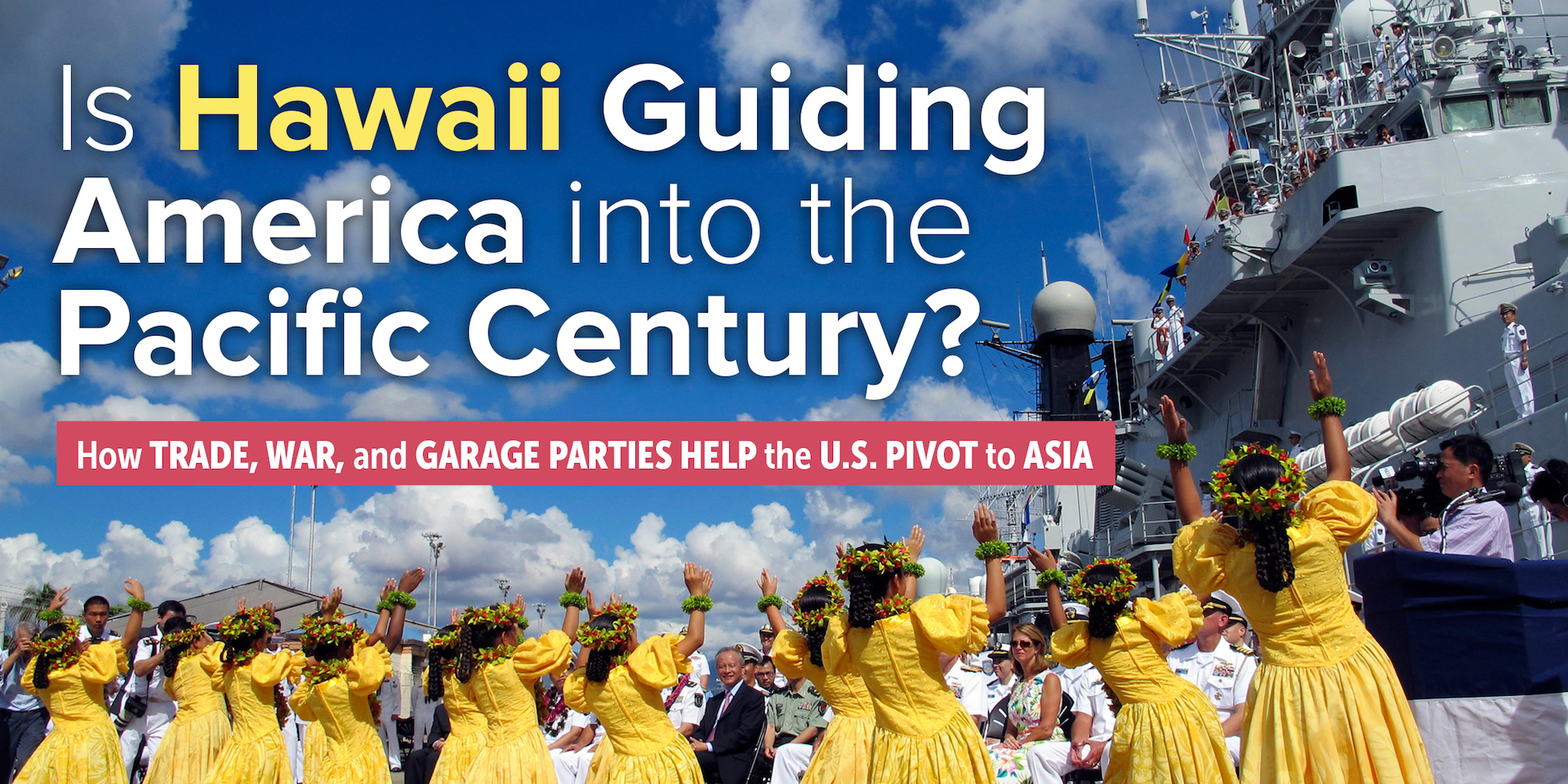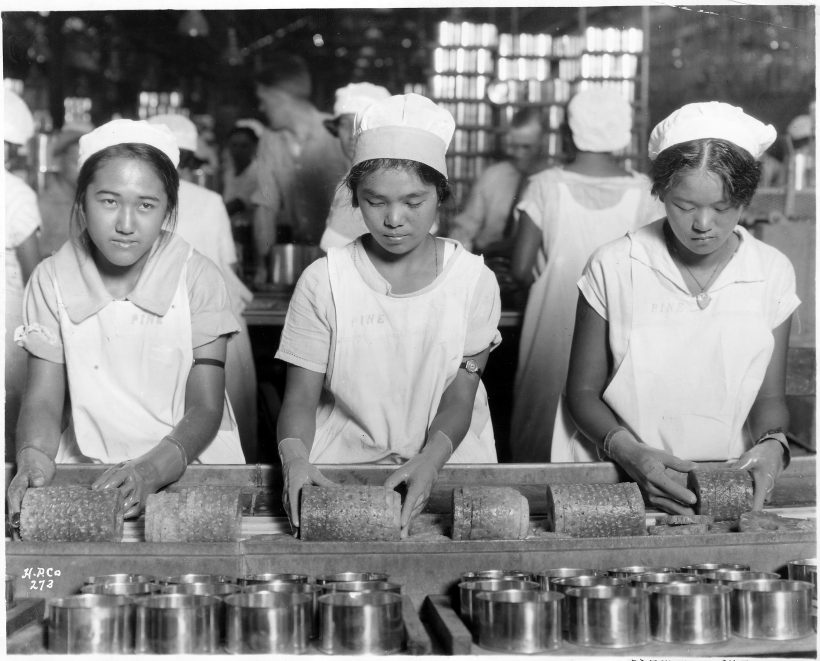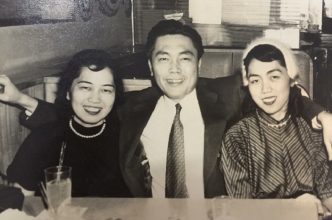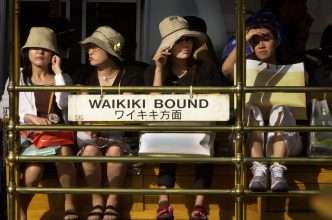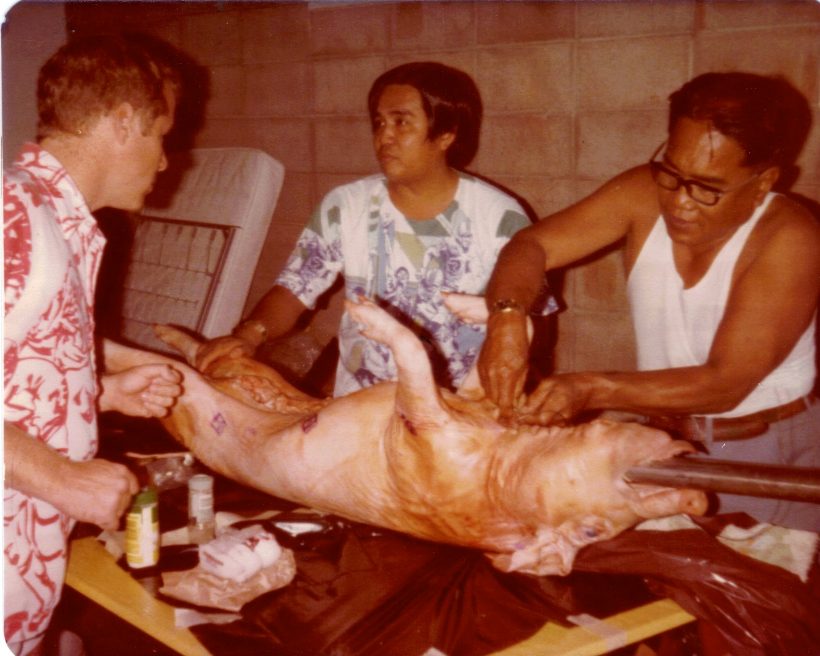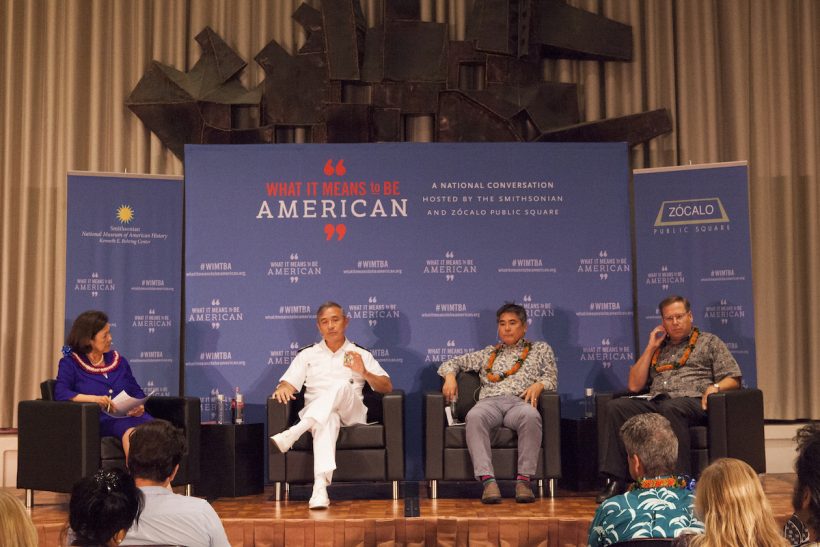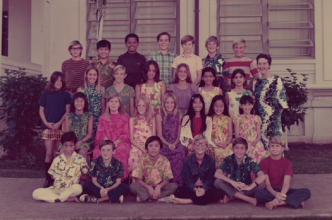In Hawaii, an Immigrant Family that Bridged Japanese and American Worlds
How Siblings Torn Between Two Sides of the Pacific Forged Identities in the Aftermath of War
I still remember them at the dining table after dinner each night in our Honolulu home. Three elegant sisters, styled out of Vogue magazine, their jet black hair in neat chignons and pixie haircuts, each savoring a cigarette and lingering over a glass of bourbon. Their laughter rang, but did not always conceal the dark ironies and black humor of memories they laced together of our Japanese-American Hawaii family torn apart by war. …
The Attack on Pearl Harbor Didn’t Stop the Japanese from Dreaming of Hawaiian Vacations
In Postwar Japan, the Aloha State was—and Still Is—a Longed-For Paradise
In August 1946, a year after Japan surrendered, a musical entitled “Hawaii no Hana” (“Hawaiian Flower”) opened at the Nichigeki Theater in Tokyo’s Ginza district. The city had barely started to recover from the devastation of the war, and a good portion was still in ruins. The Nichigeki hadn’t been damaged in any of the American air raids, but it was in bad shape. Before the war it was Tokyo’s most lavish entertainment venue, but now it was falling apart from neglect, with most of the seats missing. Patrons had to stand. …
Garage Parties in Hawai‘i Aren’t Just Any Party
Plantation Day Roots Are the Origins for Present-Day Gatherings with Plenty of Beer, a Pig on a Spit, and Community
Can Hawaii Be America’s Bridge to Asia—and the World?
Location, Economy, and Culture Might Make the Aloha State Invaluable in the Pacific Century
In the Aloha State, All (Identity) Politics Is Local
Despite Their Diverse Backgrounds, Hawaiians Prefer to Distinguish Themselves by Their Island Roots
A great novelty about Hawaii, at least among American states, is the extent of its ethnic diversity. White missionaries from the mainland and their descendants may have long dominated the island economy, but they don’t make up anything close to a majority of the population. Barely one in four residents is white, compared to more than three in four Americans nationally.
Various immigrant groups that supplied the lion’s share of labor in the heyday of the sugar and pineapple plantations came to live alongside one another. Most residents of Hawaii would be defined, elsewhere at least, partly as …




